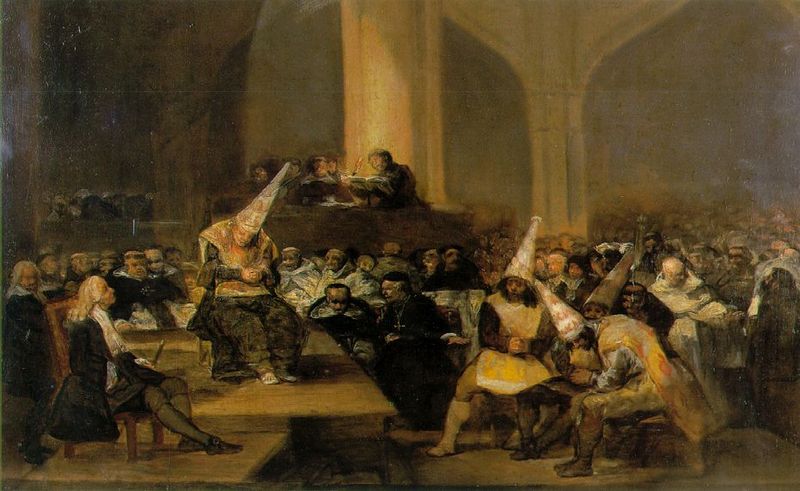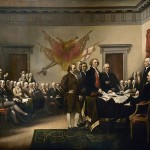Simone Weil was a French Jewish Christian mystic and philosopher. This is an extract (translated by me) of a letter she sent to a priest:
The intellectual obstacles that had stopped me at the threshold of the Church, I can look at them as gone, as long as you do not refuse to accept me as I am. Yet obstacles remain.
After some thought, I think they come down to this. What I am afraid of is the Church as a social thing. Not only because of her stains, but because of the very fact that it is, among other things, a social thing. Not that I am very individualist. I am afraid for the opposite reason. I have within myself a very gregarious tendency. I am naturally very easy to influence, too easy to influence, and especially by collective things. I know that if I had before me right now twenty young Germans singing Nazi songs, a part of my soul would immediately become Nazi. It is a very great weakness. But this is the way I am. I do not think it is useful to fight directly our natural weaknesses. We must fight ourselves to act as though we did not have those weaknesses under circumstances where our duty demands it imperiously ; and in the ordinary course of life we have to know them, prudently acknowledge them, and try to make good use out of them, because all of them can be turned to good uses.
I am afraid of this patriotism of the Church that exists in Catholic milieus. I mean patriotism in the sense of the sentiment which is granted to an Earthly homeland. I am afraid of it because I am afraid of being contagiously infected by it. Not that I see the Church as unworthy of inspiring such a sentiment. But because I want in myself no such sentiment. The word “want” is improper. I know, I feel with certitude that any such sentiment, whatever its object, is deadly to me.
Saints have approved the Crusades, the Inquisition. I am unable to think they weren’t wrong. I cannot recuse the light of conscience. If I think that on a certain point I see more clearly than them, I who am so much lower than them, I have to conclude that on this point they were blinded by something extremely powerful. That thing is the Church as a social thing. If that social thing hurt them, how badly would it hurt me, I who am so vulnerable to social influences, I who am almost infinitely weaker than them?
No one ever said nor wrote anything that went as far as the words of the Devil to Christ in Saint Luke, about the Kingdoms of this world: “I will give you all this power and all the glory attached to it, because it was given to me, to me and to anyone I share it with.” The result is that the social domain is irreducibly the domain of the Devil. The flesh makes one say “me” and the Devil makes one say “us”; or to say, like the dictators, “I” with a collective meaning. And, according to his own calling, the Devil makes a false imitation of the divine, substitutes of the divine.
By “social” I do not mean everything that is in relation to the city, but only collective sentiments.
I know well that it is inevitable that the Church be also a social thing; otherwise, it would not exist. But insofar as it is a social thing it belongs to the Prince of this world. It is because it is a body that conserves and passes on Truth that there is an extreme danger for all those who, like me, are excessively vulnerable to social influences. Thus, what is most pure and what sullies the most, being made alike and blended into the same words, become a mélange that is almost impossible to pick apart.
“Patriotism of the Church” is indeed a grave evil. Let us be always on guard against it, especially nowadays.













